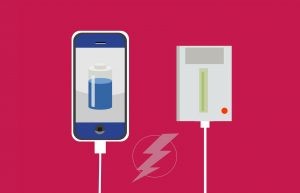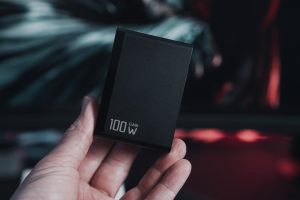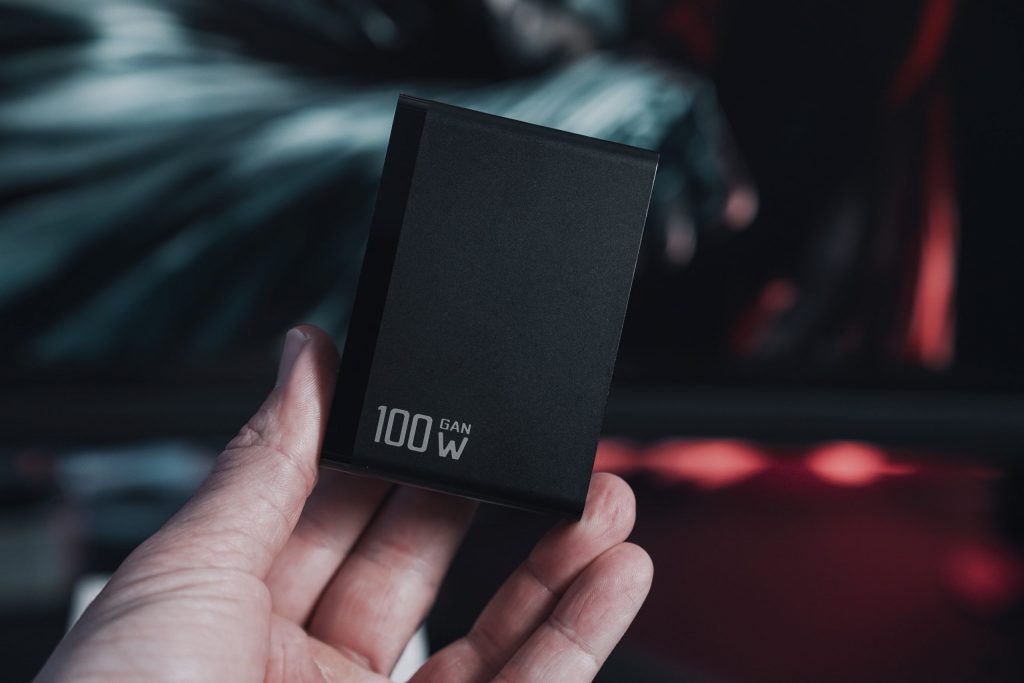
A Mobile phone battery life of devices
Batteries used in mobile devices are made of the chemical through chemical Engineering that holds a huge amount of energy. The phone battery keeps your mobile device running for hours.
The modern type of batteries are known as lithium-ion which are also called Li-ion batteries and they are now used in the latest mobile devices. Lithium-ion batteries have two main parts which are a pair of electrodes and the electrolyte. The electrodes are made of various such as lithium, graphite, or even nanowires but all of them rely on Lithium’s chemistry. It is a kind of reactive metal, having a tendency in order to combine with other elements.
Pure lithium being reactive can catch fire in the air, so most of the batteries may use a safer form called lithium cobalt oxide. Between the two electrodes is the electrolyte, a liquid organic solvent that can allow electrons to flow between them. A lithium-ion battery is charged, the lithium cobalt oxide molecules can capture and hold electrons, which they can release when the battery is in use or is running your cell phone.
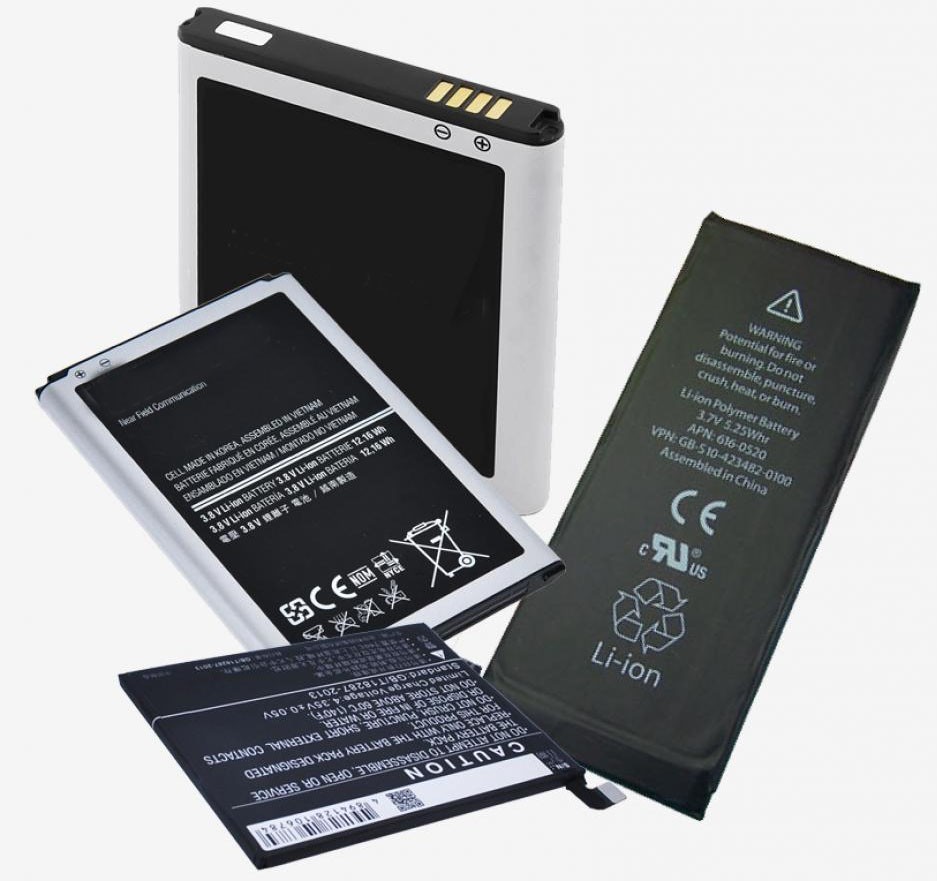
Pure lithium being reactive can catch fire in the air, so most of the batteries may use a safer form called lithium cobalt oxide. Between the two electrodes is the electrolyte, a liquid organic solvent which can allow electrons to flow between them. A lithium ion battery being charged, the lithium cobalt oxide molecules can capture and hold electrons, which they can release when the battery is in use or is running your cell phone.
Lithium ion being one of the most common form of battery it stores more energy in the smallest space. Measured in terms of specific energy density, it refers to how much energy, in Watt-hours, a kilogram of battery can hold. The figure of lithium ion can be between 150 and 250 Wh/kg, while a nickel metal hydride (or NiMH) battery may hold about 100 Wh/kg. In other words, lithium ion batteries are smaller and lighter batteries, with longer battery life.
All of this chemistry proves that your mobile device’s battery stores energy, and the chemicals inside release that energy in any way they may. Boeing recently had found out that the batteries on a 787 Dreamliner had caught fire while the plane was parked and it is one of the drawbacks of lithium-ion.
The batteries being discharged too far, the chemistry may break down and it creates an excess of lithium oxide, which can ignite, creating more lithium oxide, and so on. That is called a thermal runaway reaction, and what people may call a fire, which is why the FAA grounded the 787. Since the same thing may happen if you puncture the battery, the TSA recommends that air passengers should carefully pack batteries in their carry-on baggage, not in checked baggage.
The capacity of a battery has been measured in milliampere-hours (or mAh), which can indicate how much energy the battery delivers over time. if a battery has a rating of 1000 mAh, it could deliver 1000 milliamps of power for 1 hour. If your device uses 500 milliamps of power, the battery can last about 2 hours.
The battery life of a device can be a bit more complicated than the amount of power a device may use changes depending on what it trying to do. If the device’s screen is on, the radio is transmitting, and the processor is working hard, it may use more energy than if the screen is off and the radio and processor are idle.
That’s why you need to treat battery-life claims with caution. You may extend the battery life by turning the screen brightness down, or by turning off parts of the device.
Lithium-ion batteries need to be closely controlled due to their tendency of catching fire. Battery makers work to accomplish that by building in a charge controller which can manage the flow of electricity.
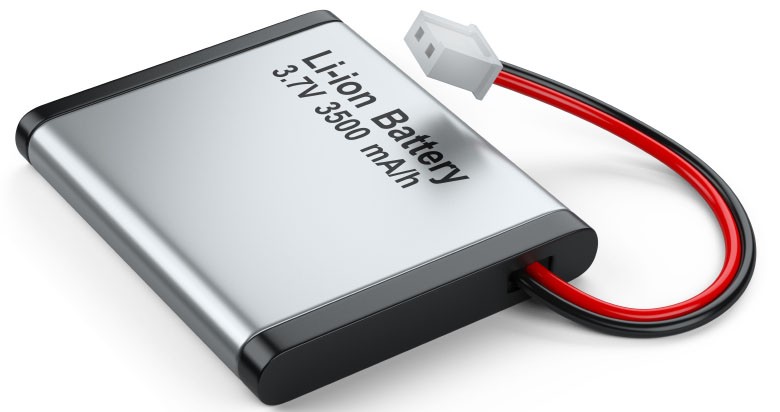
Every battery consists of a small computer inside it that can prevent it from being discharged too fast, or to a low level. This component can regulate the flow of power into the battery during charging, slowing the flow of power as the battery gets close to be fully charged to prevent overcharging.
Battery technology keeps improving, with labs around the world to be aware of new battery technologies in order to replace lithium as well as the latest approaches in order to build lithium-ion batteries. Among the new technologies, a lot of work is going into supercapacitors, in which the battery is storing energy electrically and then releasing it. Supercapacitors would allow for much quicker charging, as little chemical change may be involved, but current supercapacitors deliver power only in short bursts, which is the opposite of what most mobile devices can need.
Mobile phones consist of a rechargeable lithium-ion (or Li-ion) battery. Li-ion batteries can charge faster than traditional rechargeable batteries. And so why you are able to plug your iPhone or Android phone into a charger, and at least an 80% charge can happen quickly.
We can lose the battery life quickly constantly if we keep checking email, texting people, listening to music, watching videos, using apps, playing games. All these activities can eat up a single charge that causes our phone batteries to run out of gas, often sooner than we expect.
People think charging overnight can give a long battery life which is actually a myth. Your mobile phone may need a couple of hours to be fully charged so keeping it plugged in all night is pointless. Your activities matter not changing time.
How efficiently your mobile phone can manage its battery power may play a role, but also the amount of active screen time you are experiencing as well as how hungry your apps can be. So, while the mAh is giving you a reasonably good idea about how long a battery can last, the figure doesn’t say the whole story. That’s why it can be always a better idea to check reviews and see what other users’ experiences are like before buying a smartphone.
A mobile phone’s battery is one of the most important pieces of hardware of the device, and a mobile phone can’t be run without a mobile phone. Lithium-ion technological marvels may remain mysterious to many mobile phone users.
Discharge rates may vary not only from device to device, but also be useful to the user. So, while the mAh gives you a reasonably good idea about how long a battery can last, but some people complain that the battery dies despite having a good amount of mAh. They don’t know that actually, it depends on activities that how long can the battery run as well as having a good mAh battery. Your activities can vary so can your battery’s mAh. How much mAh battery you need depends on your activities too. If you stay busy with your mobile for a long time the amount of mAh of mobile phone’s battery should be much. So before buying a phone it is a must to check the amount of mAh of the mobile phone.
Lithium-ion is one of the most common forms of battery it stores more energy in the smallest space. Measured in terms of specific energy density, it refers to how much energy, in Watt-hours, a kilogram of the battery can hold. The figure of lithium-ion can be between 150 and 250 Wh/kg, while a nickel-metal hydride (or NiMH) battery may hold about 100 Wh/kg. In other words, lithium-ion batteries are smaller and lighter batteries, with longer battery life.
An important part of our day to day life is a mobile phone which is nowadays is needed in our personal as well as in professional life. Mobile needs to be fully charged all day long.. That’s why the battery of mobile phones needs to be better with longer battery life. Some people need to use the mobile phone all the time but some use it occasionally so it depends on their uses which type of battery is suitable for them. So everyone should know about the battery types of mobile phones to buy a compatible battery life. Mobile phones being an integral part of our day to day life they have become more versatile. One of the important reasons is that the manufacturers using technologies have invented better batteries and also the charging methods.
Types of mobile phone batteries
- Lithium Polymer
- Lithium Ion
- Nickel Cadmium
- Nickel Metal Hydride
- New Lithium Technology
Related Post
5 types of mobile batteries and guidance about them
So Let’s read the full guide to know about the types of mobile phone batteries to be assured which device should be perfect to use as per our requirement. Types …
Mobile phone battery life of devices
A Mobile phone battery life of devices Batteries used in mobile devices are made of the chemical through chemical Engineering that holds a huge amount of energy. The phone battery …

